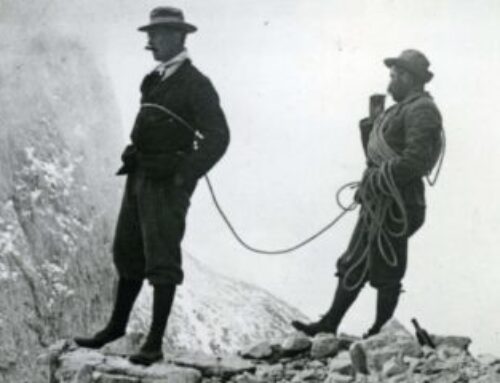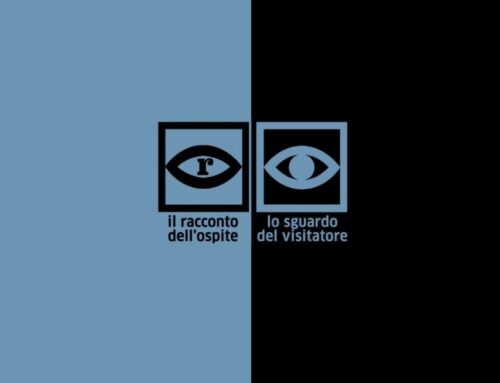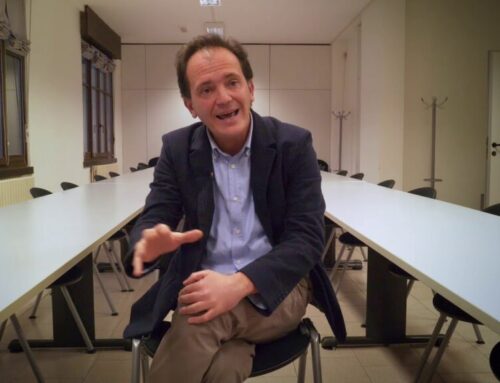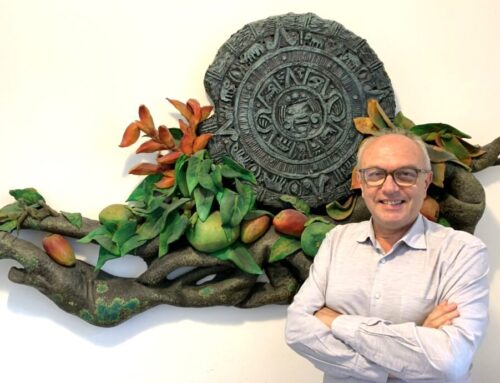Tourism is a right that should not be restricted, but mass tourism behaviour makes it lose much of its positive aspects and causes serious problems for residents.
Oriol Nel-lo is a geographer, specialised in urban studies and spatial planning and professor at the Universitat Autònoma de Barcelona.
Paolo Castelnovi, landscape architect and urban planner, is President of the Landscapefor Foundation, with offices in Turin and Genoa.
—
Paolo Castelnovi
We start, as you argue in a recent interview on overturism, from the fact that tourism is an acquired right and that it is a matter of enhancing its positive impacts and containing its negative ones. Among the positive ones are the possibilities of consolidating local socio-economic situations that are deteriorating due to abandonment and pressure from cities. To achieve these effects it is necessary to ‘spread’ tourism by reducing overcrowding and promoting less frequented destinations. But even this strategy seems futile, since it is found that the enhancement of lesser destinations does not significantly affect mass tourism in overcrowded destinations. One possibility would perhaps lie in changing the behaviour of demand: directing tourism less towards socialisation practices and the formation of standardised collective experiences and more towards the formation of individual and diversified experiences, where the visitor feels involved in the care of places, in the production of the typical, in the experience of a different way of living.
—
Oriol Nel-lo
The negative effects of mass tourism must be addressed without thinking that tourism for the few is the solution, because it immediately becomes an unacceptable class practice.
We are all tourists and we all like to be tourists.
On the other hand, in today’s overcrowded tourist destinations, the tourist trend is unacceptable, both environmentally and because of the socio-economic effects and the growing impatience of the inhabitants. Also because infrastructure costs and the burden on the public are growing exponentially: in Barcelona, the issue of the port and airport to be expanded for tourists is opposed by the local community.
Then there is a terrible impact on the offer of residence, which is now economically inaccessible for the young or the less well-off. This has strong political effects, leading to xenophobia and classism in a society that has been getting rid of them for two generations.
What is to be done? Before we think of displacing and de-seasonalising it, we must understand who pays and who gains in this trend.
In town planning, the construction of buildings has long been accompanied by obligations of urbanisation and controlled building sites, more or less applied everywhere. In tourism this is lacking both in the effects of income redistribution to pay social costs, and in working conditions, for which the normal criteria of health, protection and guarantee of workers’ rights do not apply.
This is a basic issue, which must be addressed and resolved before attempting any other territorialist or functionalist distribution solutions.
Click here to watch and listen to this part of the dialogue on video.
The difficult phase of overcoming mass tourism #1 | P. Castelnovi and Oriol Nel-lo (Barcelona)
—
Today, those who work for tourism are often among the least protected, and vice versa they provide trivial services to visitors, who are often poorly accompanied to enjoy the places they visit. Experiences in direct contact with the territory must be strengthened.
—
Paolo Castelnovi
Tourism must certainly also be addressed as a productive sector that must find social, economic and political balances within it, but it must also be taken into account that the ‘market’ supply-demand relationship is changing due to cultural changes in demand.
We think that the demand for culture today, given the supply now separated from society for the scholastic part and that without investment and projects for generations for the lifelong learning part, seeks outlets in other directions. In past years, we bet on the demand for culture in the workplace, but digital technology has altered the framework and today a small army of specialists is formed, while other workers are reduced to the role of users.
Instead, there seems to be a growing demand for cultural of other places, linked to the recent conquest of the right to travel (which is the new level of the right to holidays of the historical battles of socialism).
It is an inexpert and unorganised demand, but it relies on a curiosity linked to the pleasure of the holiday, of the different, which opens up a perspective of cultural sharing of values rich in innovation. In the face of this, there is an almost complete lack of an adequate cultural offer, as a tool for a new level of empirical, experiential widespread and ‘authentic’ knowledge, which seems to be the figurehead of the new generations.
—
Oriol Nel-lo
This leads us to think about how to organise the tourist offer differently, moving it from a market offer to a social offer, from a conception of the tourist as consumer to the tourist as connoisseur, from an individual to a collective activity.
Tourism should socialise, even if forms of social tourism have a very low prestige, such as holidays at the seaside or in the mountains for the elderly, which in Catalonia are an acquired right that is practised on a mass level with weeks out of season in seaside resorts…
How do we introduce culture as a determining factor of tourism?
If we focus our interest on getting to know a piece of territory in depth and shared with the inhabitants, perhaps it is not necessary to travel so much, but the infinite values of proximity tourism for both environmental sustainability and identity sharing can be useful.
Click here to watch and listen to this part of the dialogue on video.
The difficult phase of overcoming mass tourism #2 | P. Castelnovi and Oriol Nel-lo (Barcelona)
—
Those who reject the consumerism of mass tourism and also the ‘exlcusivity’ offered by the high end of the market, seek instead experiences close to everyday life in different places, even if they always run the risk of unsustainable exploitation of weak resources.
—
Paolo Castelnovi
The hypothesis of working on new-generation tourism also responds to the growing tendency observed in the new generations to react to consumerism in a radical way, with very sober lifestyles, sustainable even with modest incomes (from odd jobs or other marginal aspects). This trend, for now of small numbers, pushes people to look for new places to stay, for longer or shorter periods, even far from the city, where abandonment cuts costs and offers are unthinkable in urban areas.
Compared to this demand, tourism as we know it is a form of consumerism to be combated, even in its collective social forms, because it does not correspond so much to the pleasure of getting to know different places as to the pleasure of being served, of feeling like a gentleman for a few days. Paradoxically, that type of tourist demand demands to take place in non-places (see the now standardised services of hotels, from breakfasts to spas). The new one, on the contrary, goes in search of unexplored, abandoned places, often now deprived even of local communities, in order to offer itself to a primary, direct experience, of practical experiential and emotional knowledge, in which the boundaries between tourism and residence are becoming increasingly blurred.
—
Orio Nel-lo
It would be an interesting form of territorial integration with respect to neglected areas, sometimes relatively close to large urban areas.
But there are still critical aspects to be overcome:
Firstly: who manages this offer and to whom do the benefits accrue? It is not enough to promote this type of activity if attention is not paid to widespread aspects that greatly reduce the innovative scope of such trends. For example, the problem of housing, which in entire areas such as Catalonia has by now exceeded the investment capacity of those starting from scratch, even in the most remote of villages. Initiatives that start out as very positive quickly turn negative because they trigger unsustainable price spirals (since there is now a demand, even for isolated and uncomfortable places, that is much greater than the supply.
After a very short promising season, the cost of the few existing houses becomes very high because they are paid for by the citizens who use the dispersed territory for their (increasingly short) holidays, and the houses become too expensive even for the very children of the local inhabitants, who are in fact expropriated (at a high monetary price, but in any case removed forever) and the villages remain empty 90% of the time.
Attractiveness must be governed to avoid speculation, not only on housing, but on trade prices. The perverse spillovers that are in fact implicit with the level of attractiveness must be avoided: in Spain it is not everywhere, but in Catalonia, in the island contexts, in the Basque Country.
Click here to watch and listen to this part of the dialogue on video.
The difficult phase of overcoming mass tourism #3 | P. Castelnovi and Oriol Nel-lo (Barcelona)
—
New attractions and services are all to be invented and experimented with. Everything is made more difficult because there is often a lack of a local community still strong enough to be able to culturally accommodate new visitors.
—
Paolo Castelnovi
The same has produced winter tourism in entire regions (Val d’Aosta, Trentino and South Tyrol). However, the services implicit with this new model of tourism and settlement must also be rethought.
Also on the subject of management, whose fundamental importance I share, there are interesting experiences: for example, mayors in the upper Brenta valley coordinate the allocation of terraces in exchange for the maintenance of dry stone walls, etc.
New occasional inhabitants are formed who are both producers and consumers, also in individual form, who use goods that it is good not to allow to be consumed and abandoned.
This leads to the issue of common goods, which in Italy has had an important tradition in ‘usi civici’ since the Middle Ages. common goods divided among all the families of the community for production useful for living (firewood, summer or winter pasture, water sources, etc.).
The abandonment of agriculture made them forgotten, but for many centuries they constituted a mode of use of common property outside the market.
It is an interesting mode, even ON
Beautiful commons is the third way, the alterative to both the market and the state.
The idea is very good, but even here structural difficulties must be overcome:
the first is inherent in the very notion of community, the rural and stable one having now decayed. It remains to be understood by whom the community that is de facto owner of the common good is formed today: are they only the residents or those who work there
Click here to watch and listen to this part of the dialogue on video.
The difficult phase of overcoming mass tourism #4 | P. Castelnovi and Oriol Nel-lo (Barcelona)
—
The topic to be explored at this point is that of the new local communities, which will increasingly also be made up of outsiders, passionate visitors to places.
—
Paolo Castelnovi
Paraphrasing Forrest Gump, we could say that ‘community is he who makes community’ . Community is those who consolidate the commons. By now, in many places in the mountains, the inhabitants participate in the drafting of holiday programmes and plans as much as and more than the inhabitants.
—
Oriol Nel-lo
True… the same thing happens in the Pyrenees. This practice of managing the commons should not be limited to tourism, but should also expand and enter fully into the process as a main subject: for example, by forming societies that communally buy abandoned buildings and public spaces, in order to avoid the processes of accumulating rents and only distributing costs and price impacts.
Unfortunately, local actions on landscape and culture, which are often interesting and increasingly widespread, almost always lack the economic and ownership aspect that would guarantee the continuity of community management (perhaps also because the promoters are often part of a middle class without economic problems but also without project and management skills in that area).
—
Click here to watch and listen to this part of the dialogue on video.
The difficult phase of overcoming mass tourism #5 | P. Castelnovi and Oriol Nel-lo (Barcelona)
There will be a long period of coexistence of territories with still living communities and vice versa others all to be reconstituted, but in any case it seems that the best innovative factor is the cultural one, more than the economic or social ones, which are important but only complementary.
—
Paolo Castelnovi
In any case, the mayor of a small municipality is still the reference point for any project that addresses the problems, which are always complex and integral even in the small size of his community. Today, in those situations, tourism almost always presents itself as the only prospect in which one can think of facing the future. But, on the other hand, there is a lack of planning and intervention capacity in the community sense outlined here on the part of the technical and entrepreneurial class, which is always very tied to the criteria of value and the functioning of the city and the market.
Non-technical culture seems to us the only aggregating factor, the only language that can catalyse energies and interests on the subject. It will be typically urban values that will give new vigour to the project of the territories furthest from the city, and thank goodness, given the failure of rural culture in our time.
—
Oriol Nel-lo
I think the idea of learning how to use territorial capital, which is largely a common good, within a community enhancement project, even if it is different and unexpected, is a good one.
On the other hand, I have problems with the personalisation of the mayor as an agent bearer of novelty. In my Catalan experience the opposite is true…. Often the mayor is the bearer of conservative and private interests. It is only where there is an independent community capacity that the mayor sometimes represents the community, if not he often coincides with or is at the service of the local cacicco (who has the largest herd, the supermarket, the most important farm, etc.), often present with a whole tribal and paramilitary tradition behind him, well adapted to modern capitalism.
Therefore, it becomes important for us to renew the definition of community, and the cultural background of the more urban, liberal and non-hierarchical areas can form the new reference for the missing community and serve to have the ideas and innovative grit of the project that enhances the commons.
Click here to watch and listen to this part of the dialogue on video.
The difficult phase of overcoming mass tourism #6 | P. Castelnovi and Oriol Nel-lo (Barcelona)
—
What counts, however, are the traditions of activity on the commons, the habit of thinking in collective terms and not only in terms of enterprise or personal exploitation, and these are not easy to find in the new generations.
—
Paolo Castelnovi
I agree that it is difficult to find projects and management capable of triggering community processes if they are not already present in at least some local cultural/cultural practices.
In Italy, the mountains bring many such traditions, especially north of Rome, and there one can find committed mayors and common goods utilised to the full. The demographic decline of the old communities will lead to a real revolution in which it is important to inject energy and planning that does not make people lose sight of the fundamental requirements of the common good. Certainly, the ‘urban’ cultural contribution will be fundamental, since it will no longer be repetition and the habit of drudgery that will enable the new community relations, but other values, much more relational and integrated, even economically, between city and mountain.
—
Oriol Nel-lo & Paolo Castelnovi
It is also a very interesting change sociologically and psychologically, because it requires a revolution in basic relations, gender relations, intergenerational relations, relations between locals and outsiders, between manual and mental workers, and so on.
This is happening nonetheless and is changing the agenda and provoking reactions and resistance, but it is happening nonetheless and I agree that we need to monitor the process and find ways to insert new useful legal and formal instruments.
For example, it would be interesting to monitor how they are behaving with water and forests, which in some areas remain common property, in others are being privatised, also under pressure from industries that make productive uses of them other than the traditional ones.
Click here to watch and listen to this part of the dialogue on video.
The difficult phase of overcoming mass tourism #7 | P. Castelnovi and Oriol Nel-lo (Barcelona)
—
New-generation tourism is certainly a kind of vehicle for innovating relations between cities and neglected areas and for triggering local development processes more based on the recognition of common goods and their valorisation, starting with cultural ones.
—
Oriol Nel-lo & Paolo Castelnovi
This in-depth study on tourism is part of a more general work on the relationship, today, between cities and mountains, and on the role that cultural changes can have on the socioeconomic changes that will surely be induced by the abandonment of so many areas even close to the cities.
It is a world full of micro initiatives, often individual or of small numbers, and we feel it is important to try to bear witness to the trials, experiments, and battles sustained by a thousand communities in this transition, often very interesting but always solitary, not very networked, based on enthusiasm and stoic militancy, which when they fade away lead to the collapse of everything.
Therefore, activate an interactive atlas of innovative activities for tourism and the populating of less favoured territories, where each one brings its own action and can compare itself with others, especially to facilitate generational change, the overcoming of the most conservative political and cultural resistance, but also the rejection of market policies, which immediately unbalance resources and impoverish the territory. More than the social tourism mentioned earlier, which in the end is nothing more than second-class tourism, embedded within the same cultural model of consumption and services.
Click here to watch and listen to this part of the dialogue on video.
The difficult phase of overcoming mass tourism #8 | P. Castelnovi and Oriol Nel-lo (Barcelona)
—
Here you can download the paginated and printable version (in .pdf format) of the entire dialogue.




